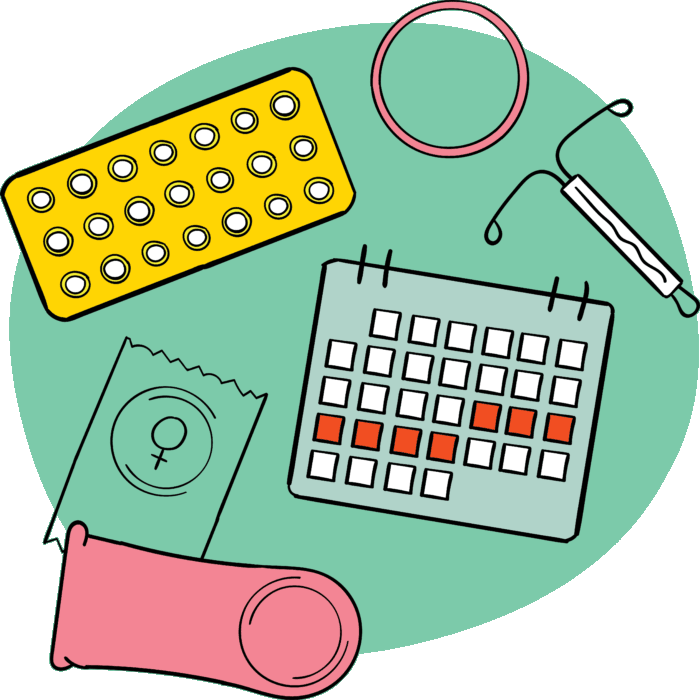There are a lot of birth control options that work very well. There is no “best choice” that will be right for everyone. You have the right to decide what is best for you. By learning about all your options, you can make a choice that fits your needs, health and values.
Questions to Ask Yourself When Thinking About Birth Control
There are a few questions you can ask yourself when considering birth control methods:
Does this type of birth control fit my needs, schedule and lifestyle?
Some birth control must be used every time someone has sex. Others must be taken daily. Some methods are placed by a medical professional and can stay in for months or years.
Some people are uncomfortable with the idea of an injection or having an IUD placed; others are not confident that they can remember to take a pill every day or remember to have condoms with them every time they have sex. Someone’s choice of birth control needs to fit their lifestyle and comfort level.
Does this type of birth control fit with my values and beliefs?
Birth control is an individual choice. And just like other choices in life, reflecting on your values and beliefs can help you make the decision that is best for you. Thinking about your values and beliefs around relationships, sexuality and health can help you as you consider the many different types of birth control that are available.
Could this type of birth control change my body? Is that okay with me?
Hormonal methods of birth control may have some side effects. Some people experience them, while others do not. Some people are willing to deal with the possibility of side effects, while others might not be. If you are unsure, a doctor can provide more information to help you make your decision.
Do I want birth control to also protect me from STIs?
Hormonal birth control does not protect against sexually transmitted infections (STIs).
Condoms reduce the risk of pregnancy and contracting an STI. Some people choose condoms as their birth control for this reason. Others use hormonal birth control but also use condoms for STI protection and as an added layer of protection against pregnancy.
What other information do I need to make my choice?
Different people need different information in order to feel good about a decision. Don’t be afraid to seek out any other information you need in order to make your choice.
The best birth control is the one you feel good about using!
Types of Birth Control
There are a few categories of birth control:
Hormonal birth control
Hormonal birth control includes things like pills, patches, injections, vaginal rings, hormonal intrauterine devices (IUDs) and contraceptive implants. These types of birth control only work on the body of someone with ovaries. This kind of birth control changes levels of hormones in the body to reduce the chance of pregnancy. Someone needs a prescription for this type of birth control.
Non-hormonal birth control
Non-hormonal birth control includes:
- Barriers like condoms (external or internal) that stop sperm from entering the uterus. External condoms are available to buy at grocery stores, drug stores and pharmacies and internal condoms can be ordered online. Both types of condoms are available for free at the Centre for Sexuality office.
- Copper intrauterine devices (IUDs) that stop the sperm and egg from meeting in the uterus. Someone needs a prescription for a copper IUD and a health care provider must insert it.
- Abstinence (not having sex). If semen does not get on the vulva or inside the vagina, there is a lower chance of pregnancy.
Emergency birth control
Emergency birth control includes pills like Plan B and Ella. These pills quickly change hormone levels in the body in order to reduce the chances of pregnancy. Plan B is available without a prescription at pharmacies; Ella requires a prescription.
Permanent birth control
Permanent birth control methods include surgeries (tubal ligation for people with ovaries or vasectomies for people with testicles). This changes physical systems in the body to prevent pregnancy. A doctor must perform these surgeries.


